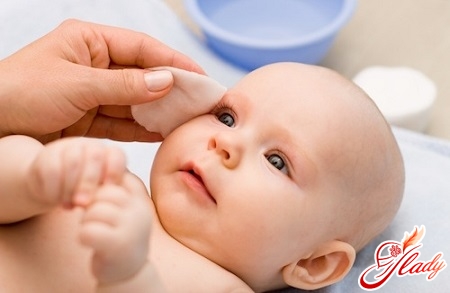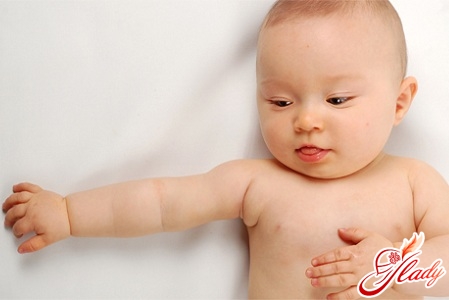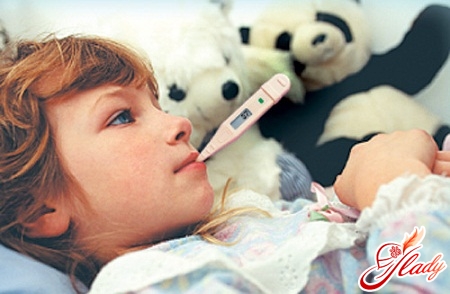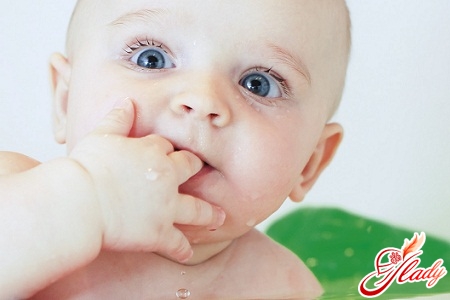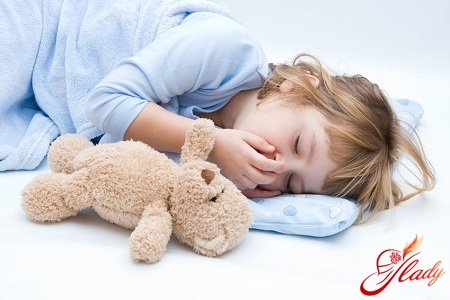 Probably every mother has heard at least once in her lifethe sound of a baby grinding his teeth, coming from the crib. This sound can be both single and multiple. The time also varies from a few seconds to several minutes. Of course, grinding teeth cannot but frighten parents. This phenomenon raises a lot of questions and concerns - is grinding teeth dangerous, how to deal with it and most importantly - why does a child grind his teeth in his sleep? Among people for several decades there has been one very common, but completely erroneous opinion about grinding teeth - if a child grinds his teeth, it means that he has parasites, in other words, worms. And parents, having heard such stories and heard how their own child grinds his teeth at night, rush to the pharmacy, where they buy pharmacological drugs that are designed to fight worms. However, such actions are wrong, and the opinion about worms is nothing more than a common misconception. The chance that a child who tends to grind his teeth in his sleep will be found to have worms during an examination is no higher than that of any other child who does not experience grinding in his sleep. But taking antihelminthic drugs is not as safe as it may seem at first glance. The drug, having entered the baby's body, has a toxic effect not only on the parasites, but also on all the baby's cells without exception. And that is why it is in no case acceptable to take these drugs just like that, for the sake of prevention, for your own peace of mind. And if you suspect that your child has worms, it is much wiser to take tests that will help to determine whether the child actually has parasites in his body.
Probably every mother has heard at least once in her lifethe sound of a baby grinding his teeth, coming from the crib. This sound can be both single and multiple. The time also varies from a few seconds to several minutes. Of course, grinding teeth cannot but frighten parents. This phenomenon raises a lot of questions and concerns - is grinding teeth dangerous, how to deal with it and most importantly - why does a child grind his teeth in his sleep? Among people for several decades there has been one very common, but completely erroneous opinion about grinding teeth - if a child grinds his teeth, it means that he has parasites, in other words, worms. And parents, having heard such stories and heard how their own child grinds his teeth at night, rush to the pharmacy, where they buy pharmacological drugs that are designed to fight worms. However, such actions are wrong, and the opinion about worms is nothing more than a common misconception. The chance that a child who tends to grind his teeth in his sleep will be found to have worms during an examination is no higher than that of any other child who does not experience grinding in his sleep. But taking antihelminthic drugs is not as safe as it may seem at first glance. The drug, having entered the baby's body, has a toxic effect not only on the parasites, but also on all the baby's cells without exception. And that is why it is in no case acceptable to take these drugs just like that, for the sake of prevention, for your own peace of mind. And if you suspect that your child has worms, it is much wiser to take tests that will help to determine whether the child actually has parasites in his body.
Causes of scratching with teeth
But, in no case should you simply ignore itthe problem of grinding teeth in sleep. This problem is a direct threat to the health of children's teeth. Unfortunately, doctors have not yet been able to establish the exact reasons why a child grinds his teeth, which is called bruxism in medicine. However, there are still several prerequisites that can provoke bruxism:
- Stressful situations.
As everyone knows, children's psyche is very fragile.and it is easy to traumatize. A child's stress state can be caused even by minor, from the point of view of an adult, problems: moving to another place of residence, going to kindergarten, the appearance of a new member in the family. Moreover, even positive emotions, if there are too many of them, can lead to the emergence of a stress state. That is why psychologists advise strictly dosing the number of impressions a child receives.
- Sleep disturbances.
If a child has a tendency to sleep disorders – incorrect alternation of its phases, nightmares, the risk of bruxism is very high.
- Presence of adenoids in a child.
Doctors say that if a child suffers from adenoids, the risk of developing bruxism is approximately eighty percent.
- Hereditary factor.
Very often a tendency to grind teethis passed on to the baby by inheritance, from parents to children. The hereditary factor is especially common in boys. If your baby has started grinding his teeth, ask your parents whether this was noticed in you when you were children.
- Cutting teeth.
Sometimes there are cases when even a babyGrinds teeth in sleep. In small children, this phenomenon can occur not only with a pathological jaw structure, malocclusion or stress, but also with teething. The baby's gums itch, and he involuntarily clenches his jaw, trying to eliminate the itch. If you notice that a one-year-old child grinds his teeth, check if his gums are swollen. If you notice signs that your baby is teething, lubricate them with a special gel that relieves itching and pain, give the baby teething toys.
- Violation of the bite or abnormal body structure.
Often, teeth grinding canindicate that the child has any problems with the bite or a congenital disorder of the structure of the jaw apparatus itself. For an accurate diagnosis, parents who notice that their child grinds his teeth at night should consult a dentist. If the doctor finds a bite disorder in your child, he will offer you treatment options. It is also extremely unwise to ignore the problem of malocclusion. Since the child may develop certain complications, such as:
- Premature erasure of dentin - tooth enamel, which will lead to increased sensitivity of the teeth and their propensity for destruction.
- Increased risk of caries in the child.
- An acute and chronic form of the development of the inflammatory process of periodontal tissues.
The level of development of modern dentistryis so high that it allows to eliminate any malocclusion in a child with almost 100% probability. But for this, treatment must be started as early as possible, without wasting precious time.
Elimination and prevention of bruxicism
But despite the fact that all parents are veryare very worried about nighttime teeth grinding, it occurs in one in three children, and some of them grind their teeth not only in their sleep, but also while awake. Pediatricians say that periodic teeth grinding, lasting no more than 7-10 seconds, should not be a cause for panic on the part of parents. In most cases, bruxism, not caused by any serious pathologies, goes away completely on its own, without any outside intervention, by about the age of seven. If neurologists believe that the grinding is caused by any nervous disorders, the appropriate therapy allows you to get rid of bruxism. If the cause of this disorder is dental problems, then the relevant specialists will make every effort to eliminate bite defects, if possible. And in addition, it is the dentist who must decide whether there is a need to use special protective pads that are designed to protect teeth and prevent injury. These pads are placed in the child's mouth during sleep. Very often, doctors use another type of treatment - vitamin and mineral therapy. As numerous studies have proven, a lack of magnesium, calcium and B vitamins increases pathological spasm of the masticatory muscles while the child is sleeping. Taking appropriate vitamin and mineral complexes can almost completely eliminate bruxism caused by a lack of vitamins. Special exercises are also a very good prevention of spasmodic activity of the masticatory muscles. By the way, chewing candies will serve as an excellent trainer. If your child is old enough to perceive your explanations, show him how to properly relax the jaw muscles so that the teeth do not close. Such a measure is also an excellent means of preventing teeth grinding.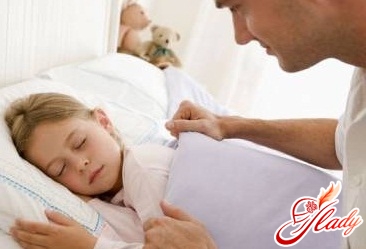
Other measures
As mentioned above, creaking in sleepteeth grinding can be a consequence of a disruption in the normal functioning of the nervous system. And it is within the power of parents to take a number of necessary measures in order to avoid such a situation. Pay special attention to the psychological situation in the evening. Never sort things out with your child in the evening, less than three hours before bedtime - this can have the most negative impact on the baby's restful sleep and become the reason why the child grinds his teeth at night. Create a calm and cozy atmosphere for your child before bed - dim the lights, avoid watching TV and, especially, computer games. Turn on quiet calm music, preferably classical, talk to your child or read something to him - in a word, direct him in a calm direction. In no case allow systematic disruption of the normal daily routine. If the child goes to bed too late and very tired, the risk of grinding teeth in his sleep increases many times over. Doctors - pediatricians advise those parents whose children grind their teeth in their sleep to put them to bed an hour earlier than usual, for example, not at nine, but at ten o'clock in the evening. Observe the child - will he grind his teeth that day. If the attack of bruxism does not recur, then the cause was excessive fatigue. Try not to feed the child at night - less than two hours before the child goes to bed. The only exception that can be - a glass of kefir or milk before bedtime. However, dairy products can be given to the baby only if he does not have problems with nocturnal enuresis.
Psychological aspects
Child psychologists strongly recommendparents to talk to their children before bedtime. Find out from the baby if anything worries him, if he is afraid of anything. Often, even the smallest children keep all their fears to themselves, afraid to talk about them out loud. If your baby tells you about his fears and doubts, do not ridicule them under any circumstances, no matter how trivial they may seem to you. Listen carefully to the baby and try to dispel all the doubts and fears of the child as tactfully as possible. If for some reason you cannot do this yourself, be sure to seek help from a child psychologist, do not leave the problem unresolved! A warm, sincere conversation is very useful for a child even if he is not afraid of anything and is completely calm, and the reason for grinding his teeth is something else. After all, parental attention, warmth and affection are always necessary for a child, regardless of whether he is big or small. Psychologists have noted that in families where parents constantly communicate with their children, and this communication is not limited to simply checking homework and lecturing, there are far fewer problems, disagreements and squabbles. And even the difficult transitional age for such children proceeds much more smoothly and painlessly.
We remove unpleasant sensations
The morning after the night, when a small childgrinds teeth especially hard, waking up, the child may experience quite noticeable discomfort in the jaw muscles. Doctors, in order to help the child, recommend the following:
- Rinse your mouth with chamomile.
The fact that ordinary chamomile isa wonderful anti-inflammatory and bactericidal agent, is known to all. But the fact that chamomile decoction helps relieve pain is not known to everyone. In order to ease the child's condition, prepare a chamomile decoction and let the baby rinse his mouth. The decoction is prepared as follows: take two teaspoons of dry chamomile flowers, which can be bought at any pharmacy, place them in an enamel bowl and boil for 10 minutes. After that, cover the bowl with a lid, let the decoction cool and strain through cheesecloth.
- Warm compresses.
Such a simple measure as ordinary damp warmcompresses, very quickly relieve the baby's discomfort. They are made very simply - just wet a terry cloth napkin in warm water and apply it to the baby's jaw. It is necessary to change the napkins as they cool down, until the pain goes away.
Bruxism is in the daytime
Sometimes parents complain to the doctor that their childGrinds teeth during the day. Bruxism during the day is less common than during nighttime sleep, but it still happens. The parents' principle of action should be the same as during nighttime attacks. And, in addition, parents should monitor the child's behavior and stop all attempts to grind teeth. In any case, sooner or later, provided that the parents strictly follow all the doctor's recommendations, this disorder will disappear quite quickly. We recommend reading:





